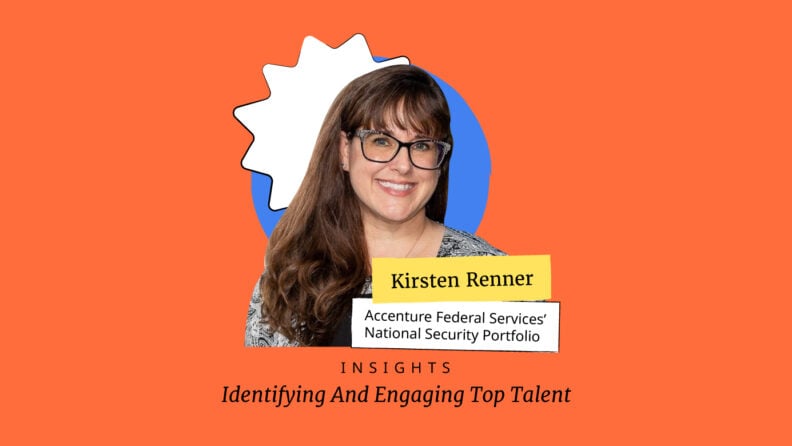Companies are always on the lookout for talented people. In this interview series, we talk to seasoned HR professionals to pick their brains for ideas and insights on finding the right talent for our organizations.
Hi Kirsten, welcome to the series! Before diving in, our readers would love to get to know you. Can you tell us the backstory about what brought you to this specific career path?
My career journey started fresh out of high school with a temporary front desk position with a federal contractor in the early 1990s. From there, I ended up teaching myself to code and wrote a small component of a remote profile maintenance application.
Next, I transitioned into a helpdesk role that eventually led to building and managing desktop support teams, both at an ecommerce start-up and then a local municipality.
Fast forward to early 2000, and I combined my love for technology and team building by going into technical recruiting where I have remained ever since.
I always ended up leading initiatives and programs with a focus on process, which naturally led me into management roles. Who knew that my pesky need to “fix things” would turn out to be one of my superpowers?
In 2016, I took on the role of Director of Recruiting at Novetta, later acquired by Accenture Federal Services, where I now run the National Security Portfolio recruiting team and assist the greater Accenture Federal Services recruiting program with overall process improvement and re-design.
It’s said that our mistakes can be our greatest teachers. Can you share a story about the funniest mistake you made when you first started and what you learned from it?
Picture me, attending my first-ever security conference in 2010. This was my chance to get to know and engage with the community I was recruiting in.
I met and connected with some folks and ended up following them around the rest of the weekend, from session to session.
We wound up in a penthouse suite where the press was interviewing people conducting a technical demo, and folks were chatting in small groups. I walked up to two people who were talking and causally said to one of them, “Hi, I’m Kirsten. You look familiar.” He politely nodded and kept talking, so I took the hint that my icebreaker wasn’t successful and walked away.
Turns out, he was the founder of not only the conference I was attending but another giant conference; and was a famous person in Infosec. Hence, I suppose, that’s why he looked familiar!
Lesson learned—do your research and know before you go! Lucky for me, and a testament to the character of the individual, I was not called out for my embarrassing social blunder.
Can you please give us your favorite "Life Lesson Quote" and how that was relevant to you in your life?
I was fairly new to an organization and was just assigned to a new boss. I was leading a small team of recruiters and a new requirement had them stumped. I ended up fulfilling the requirement myself and reported it to my boss during our next weekly check-in. Instead of congratulating me as I expected, he said “It’s not your job to be a hero.”
My initial reaction was to feel unappreciated, but, when I pressed him further on it, he patiently explained that if I had the ability to do something my team couldn’t, my job was to teach them how to do it.
My whole outlook on my purpose as a leader changed that day. I realized the most fulfilling thing I would ever do in my career is build up the people I lead and help them succeed.
I will never forget that lesson and it made me so much stronger and better at being a leader in recruiting. I now harness the strengths of individuals on my team by encouraging them to lean on and teach each other. No heroes or contests, just one well-oiled machine built by many components of talents and strengths.
Bonus quote from me: To be a hero is not sustainable—but you can be a leader for a lifetime.
Awesome quote! Now let's jump into the main focus of our series. Hiring can be very time-consuming and challenging. Can you share with our readers a bit about your experience with identifying and hiring talent? What's been your most successful recruitment-related initiative so far?
The secret ingredient is ‘re-training the thinking’ and focus of managers and recruiters away from individual requirements and onto the candidates themselves.
Recruiting is not a puzzle in which one individual fits neatly into one spot. It’s bigger than that.
Recruiters don't need to sell jobs to people, they need to help people find the right match for themselves among the opportunities within the organization.
These matches are based on a myriad of factors that are about more than a quick resume-to-req comparison. People need to feel cared for, and recruiters who believe in the missions they support are driven to make these matches come to fruition.
Once talent is engaged, what's your advice for creating a great candidate experience and ensuring the right people go through the process?
When recruiters and hiring managers are really making the focus about people, there will be cross-functional collaboration. Managers and candidates should not be limited to just one chance to make it work.
I liken it to friendships and dating. What if we gave all our relationships only one shot at an interaction, how lonely and sad would the world be!?
Offer options and chances. Restaurants offer more than one menu item for a reason, right? Look at an individual’s willingness and ability to grow and learn as their first qualifier to gain the skills needed to do the work!
If Janet has the skills to do ABC on your team, but expressed an interest in learning XYZ over on Sally’s team, you should give Janet that option. Both Janet and Sally will remember it. Janet wins, Sally wins, the organization wins, and guess who is going to send referrals for ABC on your team… It all comes full circle.
Based on your experience, how can HR and culture professionals work with the broader organization to identify talent needs?
It’s a two-part formula that balances a true partnership between recruiting and hiring teams with real-time analysis of supply and demand.
The ‘supply’ in this equation is the individuals engaged with recruiting that a mutual interest has been established with. The demand is the open (and forecasted) requirements.
Frequent and regular communication, translated into reports that can be analyzed, will ensure the right focus by recruiting, which results in the production of the right pool of individuals to be considered. It’s all relationship-based.
Is there anything you see recruiters, internal or otherwise, do regularly that make you think, "No, stop doing that!"?
I have 3.
- If you are a recruiter, STOP thinking about profit. It’s none of your business. Let the business handle that. You are the conduit between the managers you deliver available talent to and the human beings who want to be matched to their next best opportunity. You just figure out what the talent pool needs to do the work, and then deliver.
- STOP sending people boilerplate mass messages. Communities are small. If you can’t take the time to craft a personal message to me, you’ve started the relationship off poorly.
- STOP passing people around. If you pass me along when I don’t fit “your” needs, instead of walking me to the finish line, I’m not feeling very special. There are plenty of other companies hiring right now that will do better.
With so much noise and competition out there, what are your top 3 ways to attract and engage the best talent in an industry when they haven't already reached out to you?
Super simple: Be honest; dedicated and available. If you believe in the work you support, it sells itself. You can’t fake it.
Honesty means being upfront—people remember and appreciate that. Dedication speaks for itself, and availability is often translated into the time you take to really engage. A recruiter who is listening and making their intake with a candidate about the person—not a box-checking exercise against a job description—creates a more meaningful candidate experience.
Years ago, I told a candidate that, as much as I wanted to fill my opening, I believed someone else had something that was a better match for what they said they really wanted, and they were hired into that other job. And guess what—that person appreciated the feedback and never forgot what I did.
Not only did they end up sending me a ton of referrals based on the experience, years later, I did end up hiring them.
I wish we weren’t called “recruiters”, or even “talent acquisition” for that matter. It sounds so impersonal and makes it seem commodity-based. The best of us are “partners” and “agents”. We are “advocates”. We make meaningful connections that lead to teams doing critical work.
What are the three most effective strategies you use to retain employees?
Take everything I said about recruiting here and make it work for retention. If you think of what you’re willing, as a company or hiring manager, to do to attract candidates, use that same methodology when caring for your existing employees.
This includes listening and ensuring they have the paths in front of them and that they stay challenged and fulfilled. Are you listening to your employees? Creating a growth path for them? Ensuring their needs are met? If you’d do it to convince a candidate to join, you should do it for your existing talent pool to stay!
Can you share five techniques that you use to identify the talent that would be best suited for the job you want to fill?
1. Know the work. Really know it, learn it, read articles, and take classes. I’m not saying you have to be a cloud engineer to recruit one, but it doesn’t hurt to understand the technologies. A few of my recruiters have gone so far as to get technical certifications. One of them, Jamal Drake, took attending technical competitions to the next level and participated—and won! That is exceptional recruiting by way of genuine meaningful engagement. And that one’s going in my book!
2. Connect to the target audience. What are you trying to fill? Every business area has interest groups, conventions, and conferences. Get involved. Where are they going? Go there. Who are they listening to and what are they saying? Listen. Who are those people connected to? Connect. Be an involved member of their community offering useful content—starting with learning. People love talking about the things they love and people who love something enjoy teaching it. Ask. This has especially been the case for me in tech. I have never met an engineer that didn’t want to answer a question about the work they do. Ever. It’s a magical thing.
3. Build genuine relationships. Remember the story I told about helping someone find a job with someone else? I’ve done things like that countless times. It becomes your reputation, your legacy. It's meaningful and makes all the time it takes to do the work so worth it.
4. Collaborate not compete. Recruiters and managers who share everything multiply the chances of success for other managers, recruiters, candidates, the organization, and themselves. It’s an unbeatable truth. It's counterintuitive at first, but, if you trust it, it works.
5. Volunteer. Many years ago, I learned the incomparable value of volunteering from Kathleen Smith, an executive at ClearedJobs.net, and a leader in countless community initiatives and programs. I remember watching her go like an energizer bunny. Giving and giving. Then she asked me to help. I’m so thankful for each and every opportunity to give back. It’s wild how it feels like a gift right back to yourself as your giving helps others. Thanks to Kathleen for pushing and teaching me.
Is there a person in the world whom you would love to have a private lunch with, and why? He or she might just see this.
Barbara Corcoran. I love her personality, sense of humor, toughness, and heart of gold. I also admire that she was a waitress and then receptionist (both of which I have also been) who turned a thousand-dollar loan into a multi-billion-dollar enterprise (not because of the dollar amount, but because of her gumption and drive to want to be her own boss, and she made it happen!).
Thank you so much for your insights, Kirsten! How can our readers continue to follow your work online?
LinkedIn is a good way to start, but you can always see what talks I’m giving, what volunteering I’m doing, (or race I’m running) as well as other shenanigans I’m up to on Twitter @krenner.
More from the series



